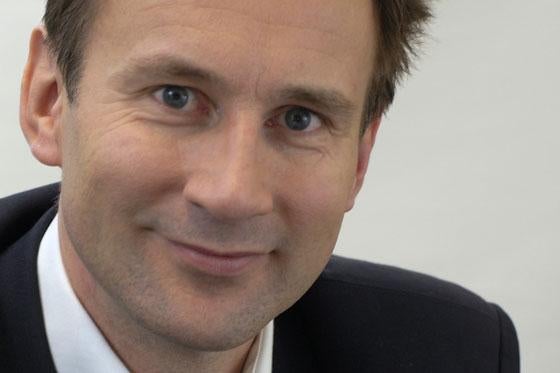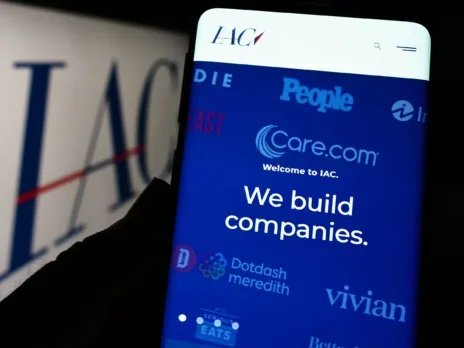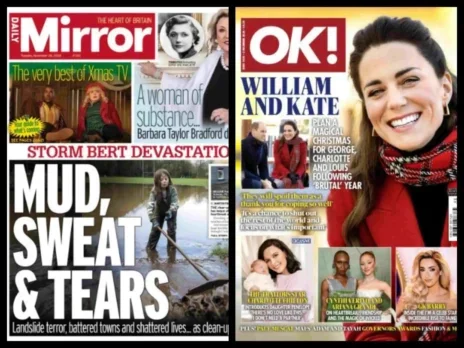
Culture secretary Jeremy Hunt confirmed today that the Government will scrap proposals to replace ITV’s regional news provision with a network of independently funded news consortia.
In his first public address on the media policies the Lib-Con coalition will seek to implement, Hunt said funds earmarked for three pilot IFNCs – taken from the BBC licence fee – would instead support market testing for a nationwide rollout of super-fast broadband.
The Government’s first priority, Hunt said, was to improve broadband infrastructure then move on to local media ownership.
Plans for three market testing projects to bring super-fast broadband to rural areas – which will be laid out next month – would prevent a new digital divide between urban and rural communities, Hunt told his audience at The Hospital Club, in London.
Hunt called the IFNC proposals ‘misguided’and said lack of high quality local TV was ‘one of the biggest gaps in British broadcasting”.
‘Fundamentally, they [IFNC] were about subsidising the existing regional news system in a way that would have blocked the emergence of new and vibrant local media models fit for the digital age,’he said.
“They risked turning a whole generation of media companies into subsidy junkies, focusing all their efforts not on attracting viewers but on persuading ministers and regulators to give them more cash.”
Hunt said would now ask Ofcom to assess whether cross-media ownership rules could be removed in the hope that local media businesses would then seek to establish a series of local TV stations across the UK.
‘New York has six local TV stations compared to London which has not one,’Hunt said.
“Birmingham Alabama, an example some of you may have heard me use before, has eight local TV stations despite being a quarter the size of our Birmingham that, again, doesn’t even have one.”
Nicholas Shott, of investment bank Lazard, has been retained to look at potential for “commercially viable local TV stations across the UK”, Hunt said.
Shott’s findings will then form the major part of a “local media action plan” that the Department for Culture, Media and Sport intends to publish in autumn.
Hunt added: “The Government believes in localism and the enormous benefits of fostering local cultural, economic and political identities.
“Vibrant local media are an important part of that. We are driving forward greater transparency at all levels of public life – and the challenge and scrutiny of local journalists is vital to that.
“I want a modern regulatory environment which will help nurture a new generation of hungry, ambitious and profitable local media companies.”
The previous Government had set in motion three INFC pilot schemes for England, Scotland and Wales.
The DCMS had selected its preferred bidders for the pilot process. They were:
• Scottish News Consortium – a group consisting of Johnston Press, Herald and Times Group, and D C Thomson along with independent TV production company Tinopolis – as the preferred bidder to run an alterative channel 3 local news pilot in Scotland.
• Wales Live – a collaboration between UTV, the current Channel 3 licence holder in Northern Ireland and regional publisher NWN Media – was selected for the Welsh pilot.
• News 3 – a consortium lead by Trinity Mirror with the Press Association and independent TV production company Ten Alps – was named as the partnership to run the remaining pilot in the Tyne Tees/Border region of England.
The proposal would have seen funding for the pilots come from a £130m under-spend in the licence fee which had been set aside to pay for digital switchover – with longer-term funding provided by ring-fencing part of the licence fee – however contracts failed to be draw-up before the election wash-up leaving the proposals unfulfilled.
Prior to the election the Conservatives had maintained that they saw no benefit in the IFNC plan and instead proposed the introduction of a series of city-based TV stations which would be privately funded with the aid of a proposed relaxation of cross-media ownership, the plans for which have been laid out today.
Email pged@pressgazette.co.uk to point out mistakes, provide story tips or send in a letter for publication on our "Letters Page" blog




